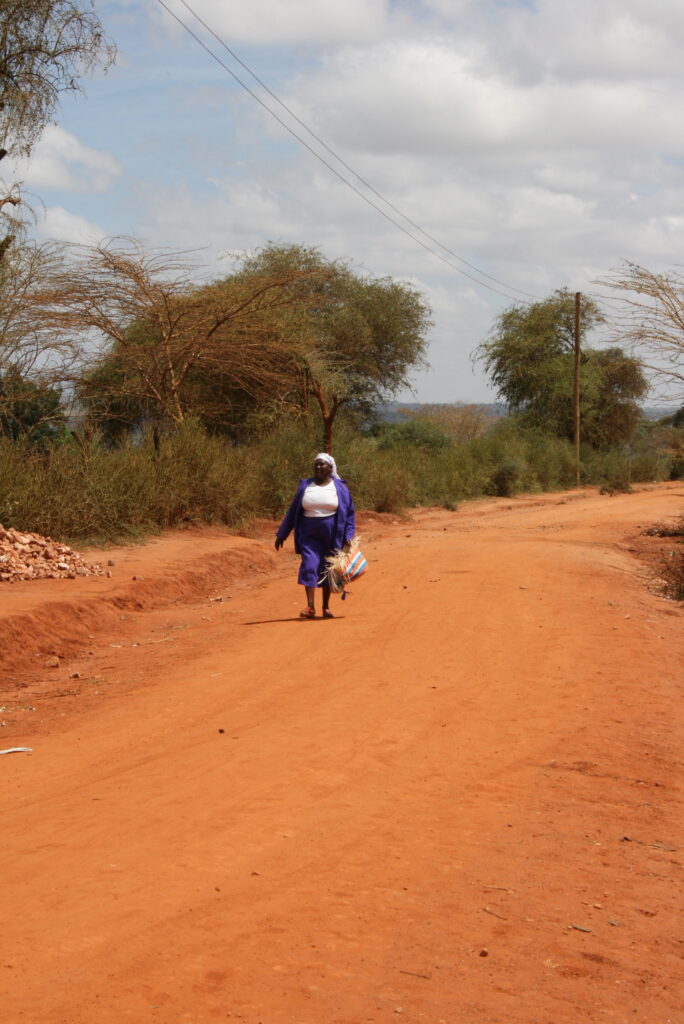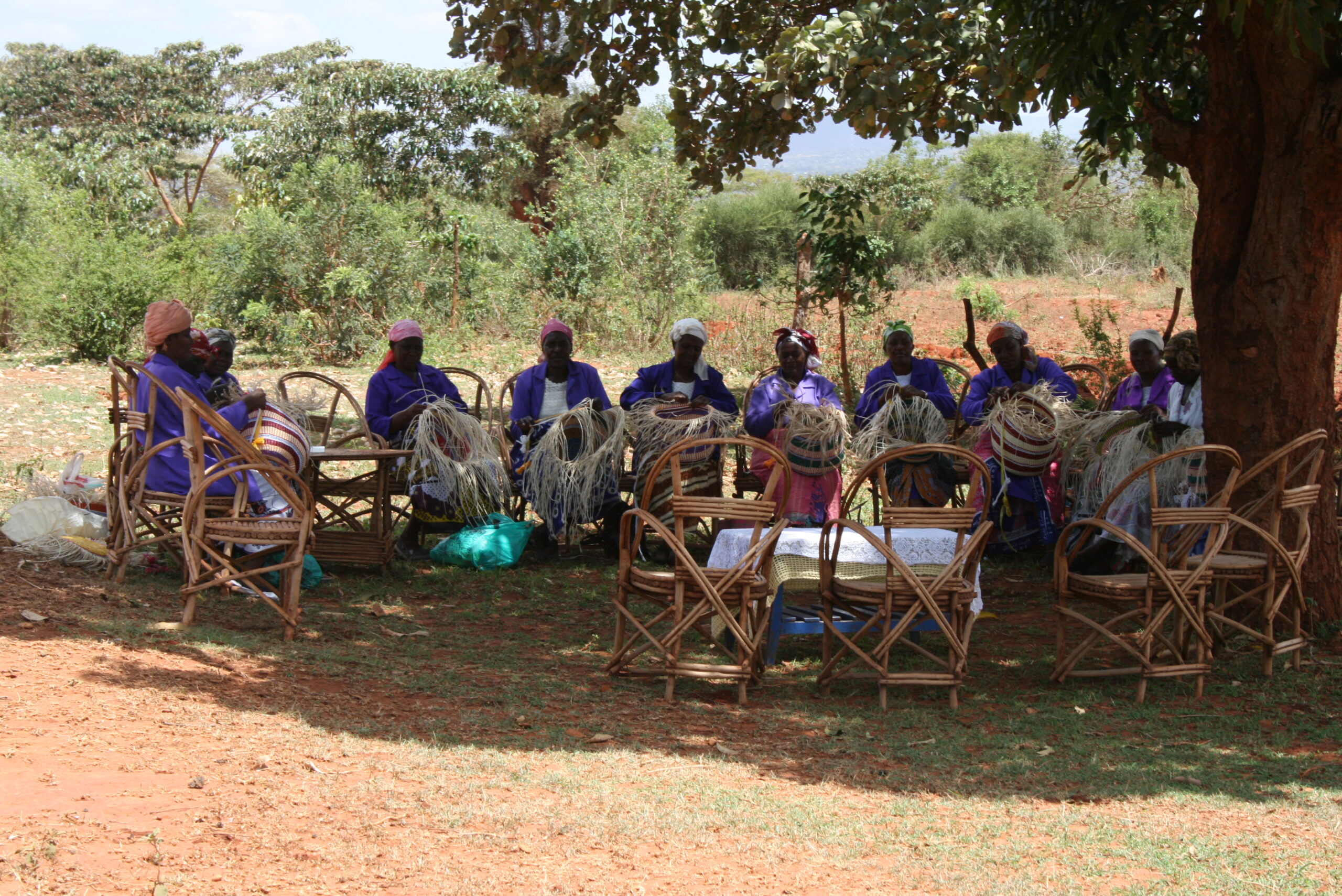
Under the swaying mango tree: the story of verified Finnish Fair Trade producer Mifuko
Helsinki-based Mifuko combines traditional Kenyan handicrafts with contemporary Nordic design. Each piece is truly unique and comes with a note, signed by its maker. But that is not all there is to the brand – this is a story that unfolds ever so quietly and blooms with the winds of the savannah.
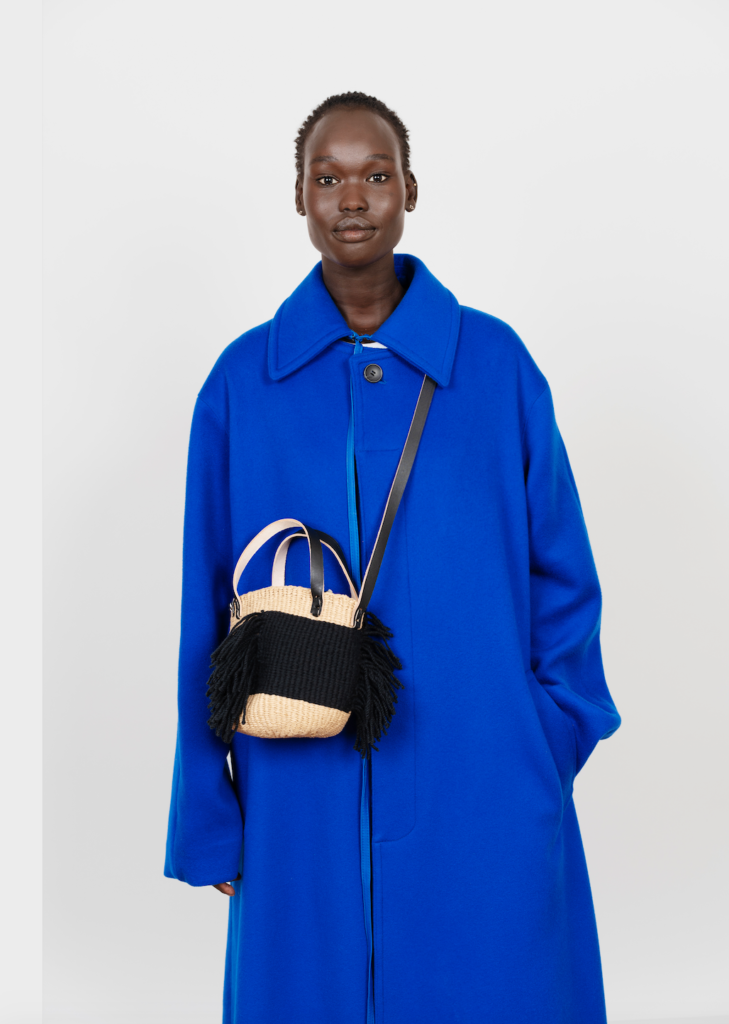
Mifuko, the Finnish design company best known for its assortment of bags and baskets, is dedicated to an ambitious mission. Mifuko, meaning pocket in Swahili, the national language of Kenya, is devoted to improving the welfare of women in rural areas of Sub-Saharan Africa. This while also committing to bringing joy to its loyal base of customers. The products are sold in over 30 countries worldwide and made by more than 1350 women artisans in the rural areas of Kenya, Tanzania and Ghana.
According to founder Mari Martikainen, the company celebrates its 15th anniversary this year. “Minna (Impiö, co-founder) and I originally met in line for the entrance exams to the local design school, now known as Aalto University. Was it in 1996? The initial idea came when Minna moved to Kenya with her family.”
In Kenya, Impiö found the local craftsmanship engaging and as a designer herself, the idea of combining the local quality craft with Nordic design started brewing.
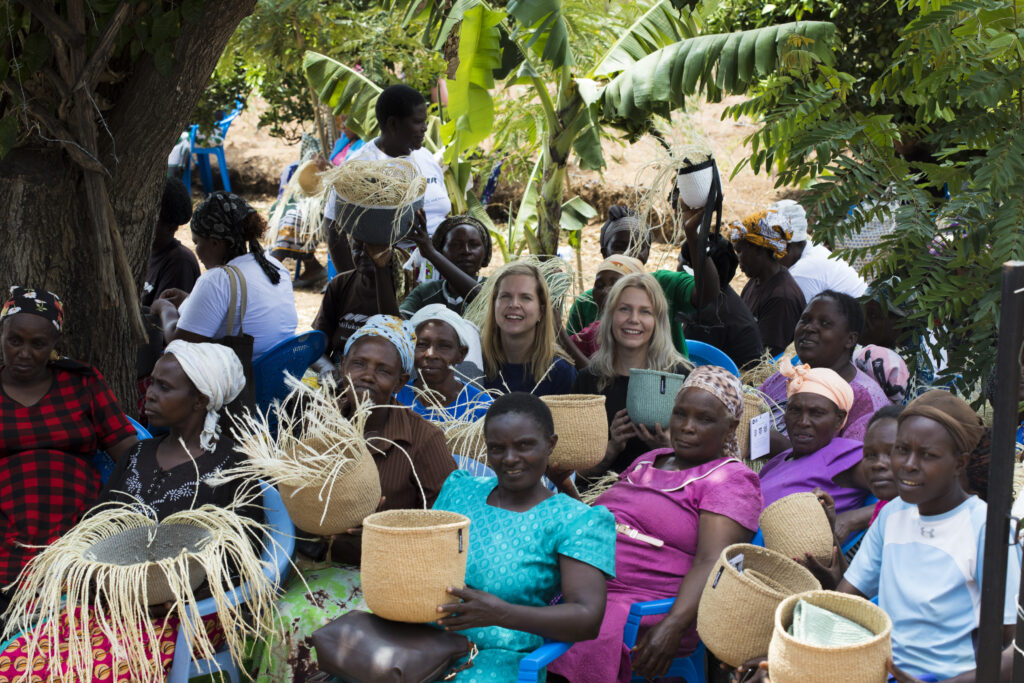
“The year 2014 was when we then made the radical decision to solely focus on baskets and bags. We had previously had a much larger range of products but baskets offered something unique to the local community. Women were able to make them in their homes and as a product these were truly unique in their ability to empower local women,” Martikainen continues.
“We have been very reluctant to use middle men, literally, as most of our 1,350 employees are women. How we then construct the work is by allowing the women to work in so-called self-help groups. This is a new way of operating for many as the women have previously sold the handmade products on local markets – but through our operation, are able to build structures. This means that work is more focused. We send regular orders which then, in turn, enables work to be more organised – and stable in nature,” confirms Impiö.
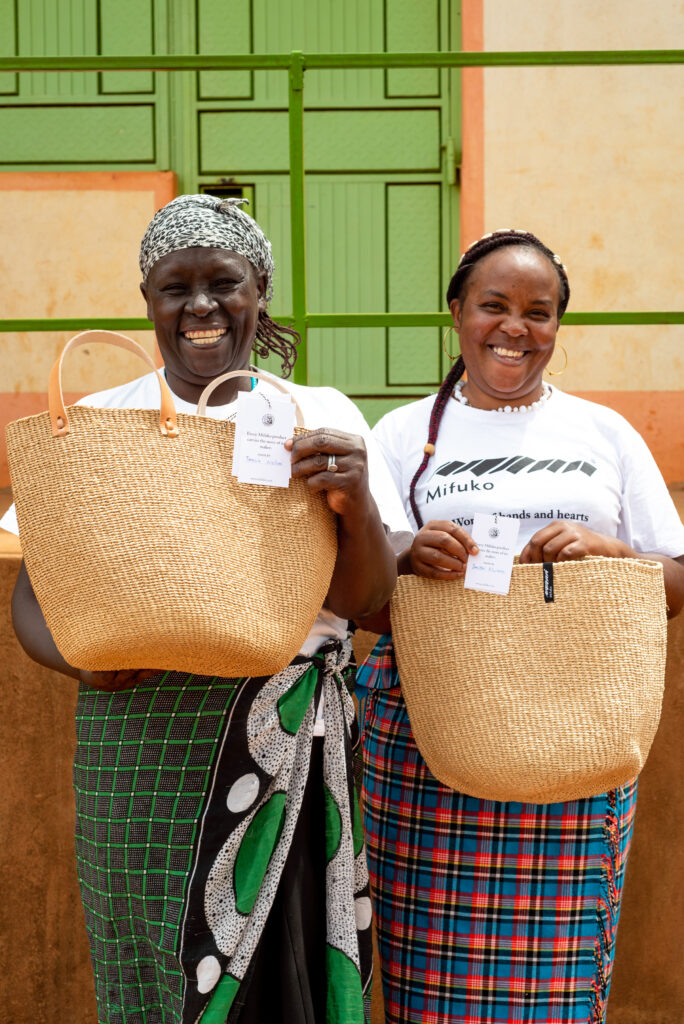
While the term self-help might come with an air of faffle, it here refers to the type of business models offered in Kenya. SHG’s, or Self-Help Groups, are used to create opportunities and to improve the standard of living of those who come together to create. Often used to acquire skills or assets for the community such as schools, health facilities, or roads while creating income-generating opportunities for its members. SHG’s generally engage in businesses such as selling groceries, weaving, tailoring or running retail shops. The financial benefits of SHG’s are also vast: the groups acquire legal status to operate in Kenya, can own properties on behalf of its members and allow members to meet requirements for running a bank account in the group’s name.

“SHG’s are officially supported by the Kenyan government and allow women to have collective funds, self-sufficient financial establishments that loan and fund its member’s lives, giving opportunities to those who might not have them in the first place in the rural areas. It is a form of social security network built by the local women,” Impiö explains. “These groups bring economic independence to women and their communities.”
What does Mifuko benefit from working with SHG’s?
Impiö is quick to reply, “the better the groups of working women are organising themselves, the better these groups function and the better they do, the more the community prospers. This is something that obviously also benefits Mifuko as a whole as well. Which is why we as a company have been very active in engaging, with the help of long-time collaborator Ruth Kalondu, in the building of many of the local groupings – and currently work with as many as 40.”
While the word ‘mifuko’ might refer to pockets, it seems to also indicate that the company is truly engaged in working so that none are left empty. A certified member of the World Fair Trade Organisation (WFTO) means that the company stands behind paying fair wages and keeping orders continuous to provide security for the artisans’ future while supporting the well-being of the whole community.
“In 2012, we established Mifuko Trust which is a very important part of the company. While building a profitable business is crucial, we also want our operations to support the lives of the local people and their families. Through Mifuko Trust we have been able to secure funding from external bodies such as the Foreign Ministry of Finland and have been able to invest in local projects. These involve sanitation and hygiene – we have been building dry toilets in the first funding round and are now advancing into agroforestry in the second,” Martikainen explains.

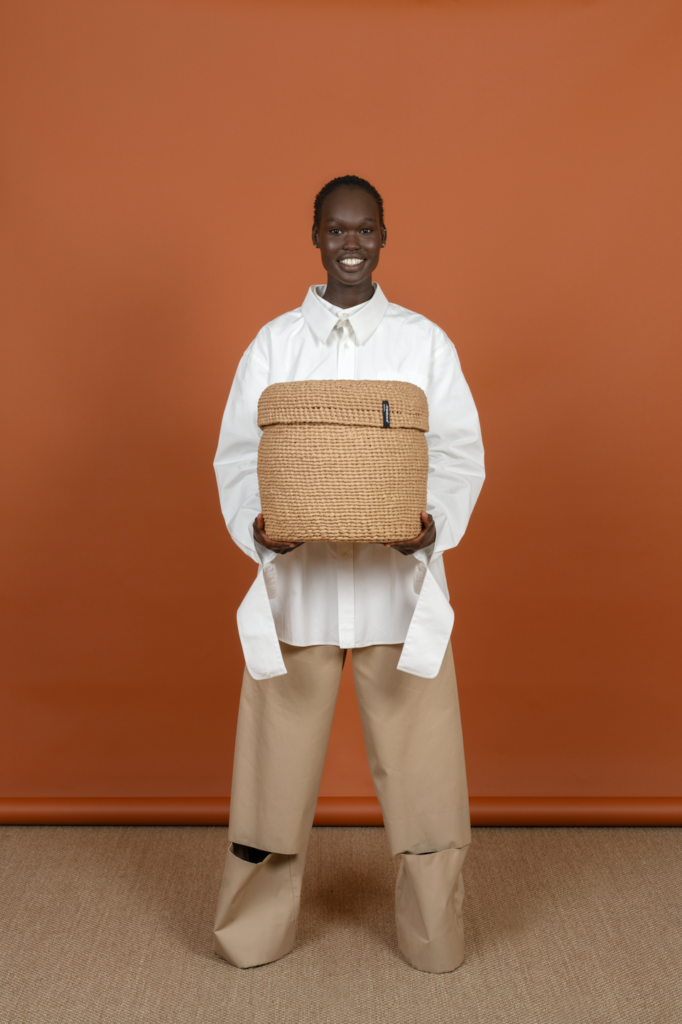
Surely this would be of international interest?
“On the corporate side, Mifuko started its global operations in 2014. Interest was first sparked in Germany, the U.S. and Japan. Customers have always found the combination of sustainability, high-quality design and a somewhat intimate grassroot level of our operations interesting. Along with the WFTO membership our production was given a type of label that makes it legit and true. This is what also enabled the collaboration with Chloé’.”
Chloé’, the French luxury fashion house orders annually more than 40,000 bags and baskets from the Finnish design company, making up to almost a half of its sales. This is big?
“The collaboration with the brand has been growing over the years and we are determined to keep the good work going. Mari and I are on our way to Paris this spring to discuss the future. However, working with large luxury fashion houses means that one needs to come to terms with changes. Change is constant and a part of the cycle – we need to stick with it,” Impiö laughs.
Martikainen continues, “but it is fascinating and also incredible to think that we are here after all these years. Who would have thought that after 15 years we would have all these 1,350 women making baskets for Mifuko? It used to be the two of us, just two friends sitting on a bus in the countryside of Nairobi.”
”It is fascinating and also incredible to think that we are here after all these years. Who would have thought that after 15 years we would have all these 1,350 women making baskets for Mifuko? It used to be the two of us, just two friends sitting on a bus in the countryside of Nairobi.”
Mari Martikainen
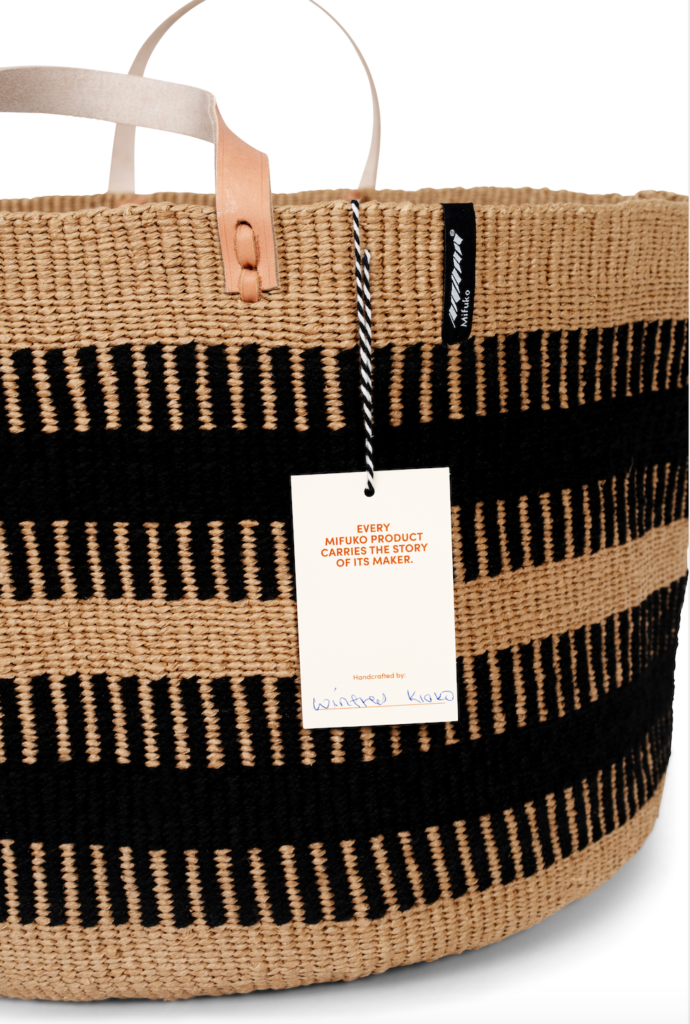
“The first drawings for the baskets were made under a swaying mango tree at the end of the red dirt road while the gentle breeze from the savanna was blowing around us.”
